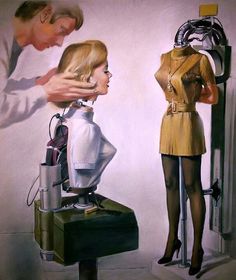Ray Kurzweil thinks humans who can survive to 2030 will become immortal, but I’m willing, regrettably, to bet the over.
I don’t doubt there can be radical life extension if Homo sapiens persevere long enough, but the answers may be a lot more complicated than medical science riding a wave of Moore’s Law. Computing power, nanotechnology and genetic code will all likely be key to such a breakthrough, but time, that precious thing, is sadly not on our side.
An excerpt from David Hochman’s very good Playboy Interview with Google’s Director of Engineering:
Ray Kurzweil:
The point is health care is now an information technology subject to the same laws of acceleration and progress we see with other technologies. We’ll soon have the ability to rejuvenate all the body’s tissues and organs and develop drugs targeted specifically at the underlying metabolic process of a disease rather than taking a hit-or-miss approach. But nanotechnology is where we really move beyond biology.
Playboy:
Tiny robots fighting disease in our veins?
Ray Kurzweil:
Yes. By the 2020s we’ll start using nanobots to complete the job of the immune system. Our immune system is great, but it evolved thousands of years ago when conditions were different. It was not in the interest of the human species for individuals to live very long, so people typically died in their 20s. The life expectancy was 19. Your immune system, for example, does a poor job on cancer. It thinks cancer is you. It doesn’t treat cancer as an enemy. It also doesn’t work well on retroviruses. It doesn’t work well on things that tend to affect us later in life, because it didn’t select for longevity.
We can finish the job nature started with a nonbiological T cell. T cells are, in fact, nanobots—natural ones. They’re the size of a blood cell and are quite intelligent. I actually watched one of my T cells attack bacteria on a microscope slide. We could have one programmed to deal with all pathogens and could download new software from the internet if a new type of enemy such as a new biological virus emerged.
As they gain traction in the 2030s, nanobots in the bloodstream will destroy pathogens, remove debris, rid our bodies of clots, clogs and tumors, correct DNA errors and actually reverse the aging process. One researcher has already cured type 1 diabetes in rats with a blood-cell-size device.
Playboy:
So if we can hang on for 15 more years, we can basically live forever?
Ray Kurzweil:
I believe we will reach a point around 2029 when medical technologies will add one additional year every year to your life expectancy. By that I don’t mean life expectancy based on your birthdate but rather your remaining life expectancy.•
Tags: David Hochman, Ray Kurzweil

